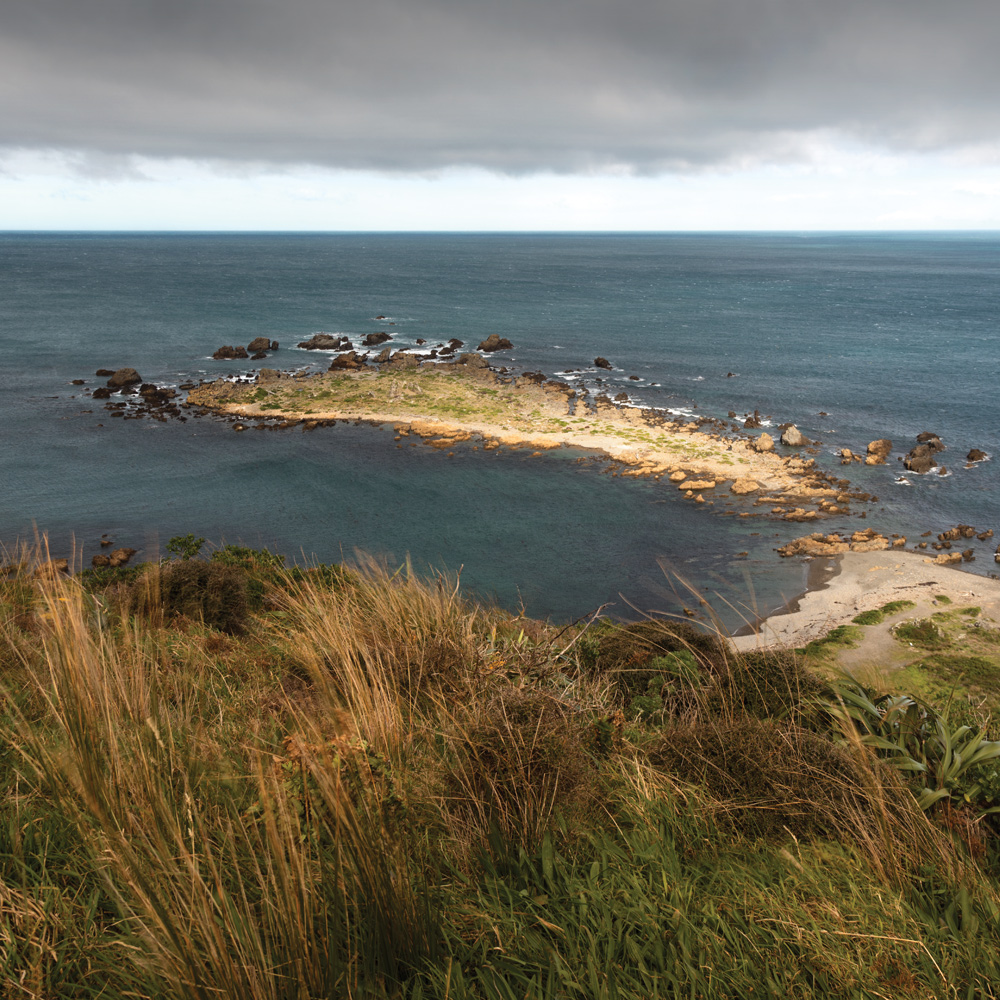o.ren.sa | /ˈɔɾəs̪aj/

If you spend a little time browsing a map of Scotland’s Hebrides, you’ll probably notice some smaller islands sharing the same name. For example, there are two Scalpays (scallop islands) and three Pabbays (monks’ islands). You may also notice a number with very similar names such as Oronsey, Ornsay, or Orosay. If you’re particularly observant, you’ll spot that all these isles are very close to larger islands. And once you know that the Gaelic form of their name Orasaigh derives from the Old Norse Örfirisey, meaning island of the ebb tide, your brilliant deduction that they’re all tidal islands will have been confirmed.
Both erosion and deposition can create tidal islands. Wave action may wash away soil and softer rock, leaving only an intertidal, wave-cut platform connecting a rocky outcrop to the mainland. Further erosion may eventually isolate and decrease the island until it disappears entirely during high tide, becoming a vanishing island. On the other hand, depositions can build up in the lee of an existing island. As the process matures, a sandy isthmus called a tombolo consolidates, eventually forming a bridge to create a tied island. If two tombolos form a lagoon, this may fill with sediment and the former island will, over time, become one with the mainland.
For many, tidal islands bring to mind castled, rocky bastions such as Northumberland’s Lindisfarne (also known as Holy Island) and Cornwall’s St Michael’s Mount. Their dual nature as places connected yet apart has made them both strategically and imaginatively attractive. Many have been used as forts, prisons, and monasteries – France’s Mont Saint-Michel, perhaps the most famous tidal island of all, has been all three at one time or another.
Introduction Aeolian Alpenglow
Benthos Crepuscular Crispate Crown shyness
Desire lines Dreich Endragoned Edgelands
Frondescence Fumarole Gluggaveður Gossamer
Karst Komorebi Lawrence Long acre
Machair Monkey’s wedding Moonglade
Psithurism Quartz Rakuyou Roaring forties
Snag Soft estate Specular, diffuse and pellucid
Spoondrift Steam fog Swash zone Sylvan